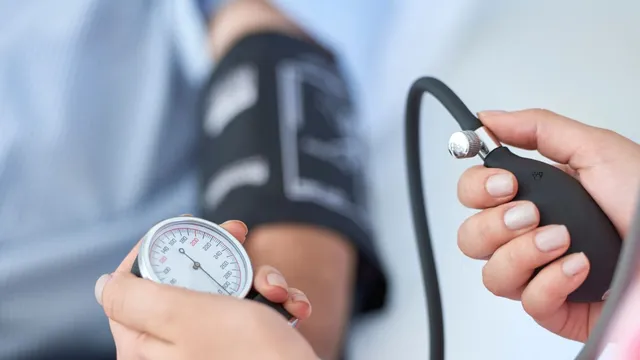- By Priyanka Munshi
- Thu, 15 May 2025 02:54 PM (IST)
- Source:JND
High blood pressure is one of the leading causes of stroke—are you aware of this? Hypertension significantly increases the risk of both ischemic and hemorrhagic strokes by damaging the blood vessels in the brain. This silent condition can severely affect brain health, but with the right knowledge and preventive measures, its impact can be minimized. In a conversation with Jagran English, Dr. Pankaj Agarwal, Head of the Department of Neurology at Gleneagles Hospital, Parel, Mumbai, discussed the link between blood pressure and stroke.
According to Dr. Pankaj Agarwal, high blood pressure—or hypertension—is often referred to as a “silent killer” because it affects not only the heart and kidneys but also the brain. One of the major consequences of untreated or poorly managed hypertension is stroke—a medical emergency that can lead to sudden disability or even death. Stroke occurs when blood flow to the brain is either blocked or interrupted. Understanding how high blood pressure increases stroke risk and knowing how to control it is crucial for protecting brain health and improving quality of life.
How High Blood Pressure Leads To Stroke?
Hypertension is closely linked to stroke. It causes arteries to become narrow, stiff, and weak over time. When the blood vessels that supply the brain are affected, they can become blocked or rupture, leading to a stroke. In addition, persistently high blood pressure damages the inner lining of the arteries, promoting plaque and clot formation.
A clot can travel to the brain and block a vessel, cutting off the blood supply. This condition is called an ischemic stroke—the most common type of stroke. Timely intervention is essential, particularly within the "golden hour." Treatment must be initiated within four-and-a-half hours after the onset of stroke symptoms—such as arm weakness, balance issues, blurry vision, slurred speech—for the best outcomes.
High blood pressure can also cause blood vessels in the brain to burst, resulting in a hemorrhagic stroke, which is more severe and often requires surgical intervention. Moreover, hypertension can trigger transient ischemic attacks (TIAs), or mini-strokes—brief episodes of stroke-like symptoms that resolve on their own but serve as warning signs of a possible future stroke, added Dr. Pankaj.
In conclusion, Dr. Pankaj Agarwal emphasized that preventing stroke begins with managing blood pressure. He advised regular monitoring under a doctor's guidance. If blood pressure is high, it's important to take prescribed medication, eat a balanced diet rich in fruits, vegetables, whole grains, and pulses, and reduce intake of salt, saturated fats, and processed foods. This means avoiding items like pizzas, pastas, namkeens, sodas, colas, sweets, desserts, bakery items, and frozen foods.
He also recommended exercising for at least 30 minutes a day, five times a week, practicing stress management through yoga, meditation, deep breathing, and journaling. Additionally, one should quit smoking, alcohol, and any form of substance abuse, and avoid self-medication. Paying attention to overall well-being is key to staying in the pink of health.

